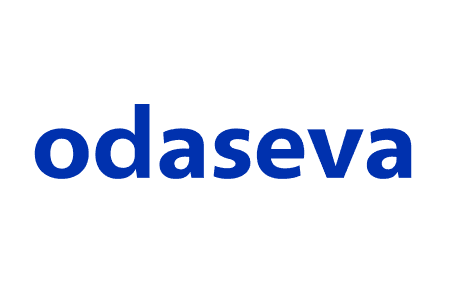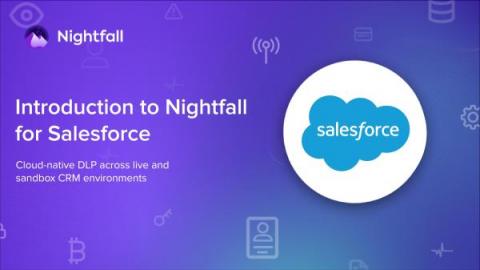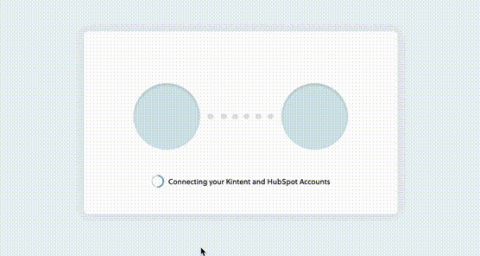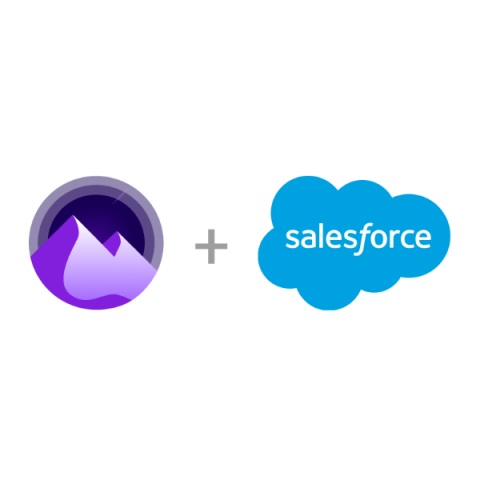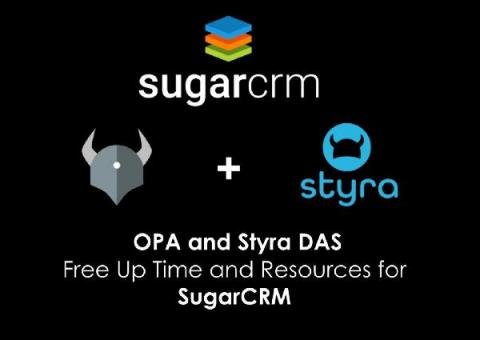Security | Threat Detection | Cyberattacks | DevSecOps | Compliance
CRM
Now Available: Nightfall Expands Data Security and Compliance for Salesforce Customers
By design, Salesforce is an environment where customer PII and other sensitive information must be shared and stored. However, compliance regulations like PCI DSS, HIPAA, GDPR, CCPA, and others limit this storage and usage of customer data to only what’s justifiably required for an organization to carry out its duties. Even then, there are requirements for how this data should be stored – like whether it should be encrypted, for example.
Connect Kintent's Trust Cloud to Your CRM
Keeping your sales and security teams in sync on the progress of security questionnaires can be painful. Frustration due to lack of transparency can occur, which tends to add friction to the sales process. This is because answering a security questionnaire and going through security reviews is a team sport, and sales people always want to know the latest status.
Odaseva Accelerates Global Momentum with APAC and UK Expansion, New Hires in Early 2022
Announcing Our Next Cloud-native Integration: Nightfall for Salesforce Enters Active Development
At Nightfall, our mission is to discover and secure sensitive data in every cloud application through a cloud-native, accurate, and performant platform. Since 2019, Nightfall has partnered with some of the world’s most innovative organizations to proactively eliminate data security risks across a fleet of SaaS applications via our native integrations for Slack, Atlassian Jira, Confluence, Google Drive, and GitHub.
Odaseva to Launch Privacy Solution, Solve Compliance Challenges for Enterprises using Salesforce
Odaseva Enables Large Organizations Using Salesforce to Comply with Global Data Regulations
Salesforce Monitoring with Tripwire Configuration Manager
You may already know that Tripwire Configuration Manager can audit your cloud service provider accounts like AWS, Azure, and Google Cloud Platform, but did you know it also has capabilities to monitor other cloud based software services such as Salesforce? Salesforce is a popular customer relationship management (CRM) service with rich configuration options that could lead to unintended risks if it is improperly configured.
OPA + Styra DAS free up time and resources for a CRM solution
Let’s say you were going to plan a security project. (Almost any project, really.) The following might be a pretty solid list of goals to aim for: That’s a pretty solid list - and might even read like “too much to ask for.” Yet, it’s exactly what SugarCRM received after deploying Styra DAS to manage Open Policy Agent (OPA) for Kubernetes guardrails.


